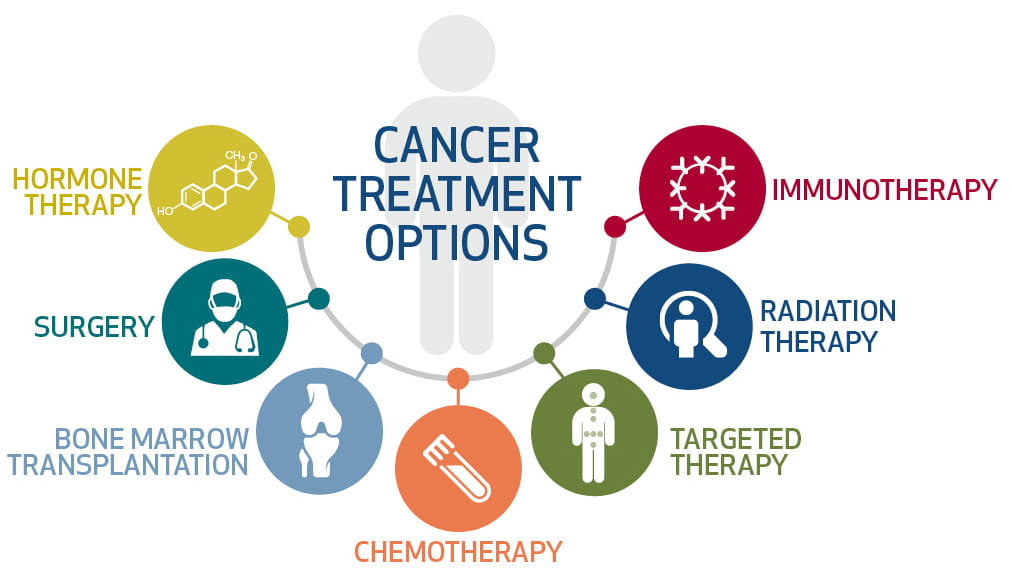Scaling Back Treatment for Some Cancers: The Latest in Cancer Research
Doctors have reported at the American Society of Clinical Oncology annual meeting at McCormick Place that scaling back treatment for three kinds of cancer can make life easier for those facing the disease without compromising outcomes. The new findings, presented during the world’s largest cancer conference, are part of a long-term trend toward looking at whether doing less — less surgery, less chemotherapy or less radiation — can help people live longer and feel better. The new research involved ovarian and esophageal cancer and Hodgkin lymphoma.
The Trend Towards Doing Less
Thirty years ago, cancer research was about doing more, not less. In one sobering example of that, women with advanced breast cancer were pushed to the brink of death with massive doses of chemotherapy and bone-marrow transplants. But that approach didn’t work any better than chemotherapy, and patients suffered. Now, in a quest to optimize cancer care, researchers are asking: “Do we need all that treatment that we have used in the past?” It’s a question “that should be asked over and over again,” said Dr. Tatjana Kolevska, medical director for the Kaiser Permanente National Cancer Excellence Program, who wasn’t involved in the new research. Often, doing less works because of improved drugs. That’s because “cancer treatment is not only becoming more effective, it’s becoming easier to tolerate and associated with less short-term and long-term complications,” said Dr. William G. Nelson of Johns Hopkins School of Medicine.
Studies Demonstrating the Trend
Ovarian Cancer
French researchers told the Chicago gathering that they found it’s safe to avoid removing lymph nodes that appear healthy during surgery for advanced ovarian cancer. Their study compared the results for 379 people — half had their lymph nodes removed, half did not. After nine years, there was no difference in how long they lived, and the people with less-extreme surgery had fewer complications, such as needing blood transfusions. The research was funded by the National Institute of Cancer in France.
Esophageal Cancer
A German study looked at 438 people with a type of cancer of the esophagus that can be treated with surgery. Half had a common treatment plan that included chemotherapy and surgery on the esophagus — the tube that carries food from the throat to the stomach. Half were treated with an approach that also included radiation. Both techniques are considered standard. Which one people with this cancer receive can depend on where they get treatment. After three years, 57% of those who got chemo and surgery were alive, compared to 51% of those who got chemo, surgery and radiation. The German Research Foundation funded the study.
Hodgkin Lymphoma
A comparison of two chemotherapy regimens for advanced Hodgkin lymphoma found that the less-intensive treatment was more effective for the blood cancer and caused fewer side effects. After four years, the less-harsh chemo had kept the disease in check for 94% of people, compared with 91% of those who had the more-intense treatment. The trial included 1,482 people in nine countries — Germany, Austria, Switzerland, the Netherlands, Denmark, Sweden, Norway, Australia and New Zealand — and was funded by Takeda Oncology, which makes one of the drugs used in the gentler chemo that was studied.
Conclusion
As was particularly evident in one two-play sequence Wednesday — an interception followed by a long touchdown pass — the Bears’ rookie quarterback has had ups and downs in practice. Despite the obsession with his progress, none of it really registers. It’s still June. The brothers, 60 and 63, were found outside the home with multiple gunshot wounds, officials said. The cause of the fire has not been determined, but the deaths are being investigated as homicides.
Long-tail Keywords:
Advanced Ovarian Cancer
The French study found that it’s safe to avoid removing lymph nodes that appear healthy during surgery for advanced ovarian cancer.
Cancer of the Esophagus
The German study looked at people with a type of cancer of the esophagus that can be treated with surgery and compared common treatment plans.
Advanced Hodgkin Lymphoma
The comparison of chemotherapy regimens for advanced Hodgkin lymphoma found that the less-intensive treatment was more effective for the blood cancer and caused fewer side effects.
Originally Post From https://chicago.suntimes.com/health/2024/06/06/cancer-treatment-asco-american-society-clinical-oncology-hodgkin-lymphoma-ovarian-esophageal-mccormick-place

